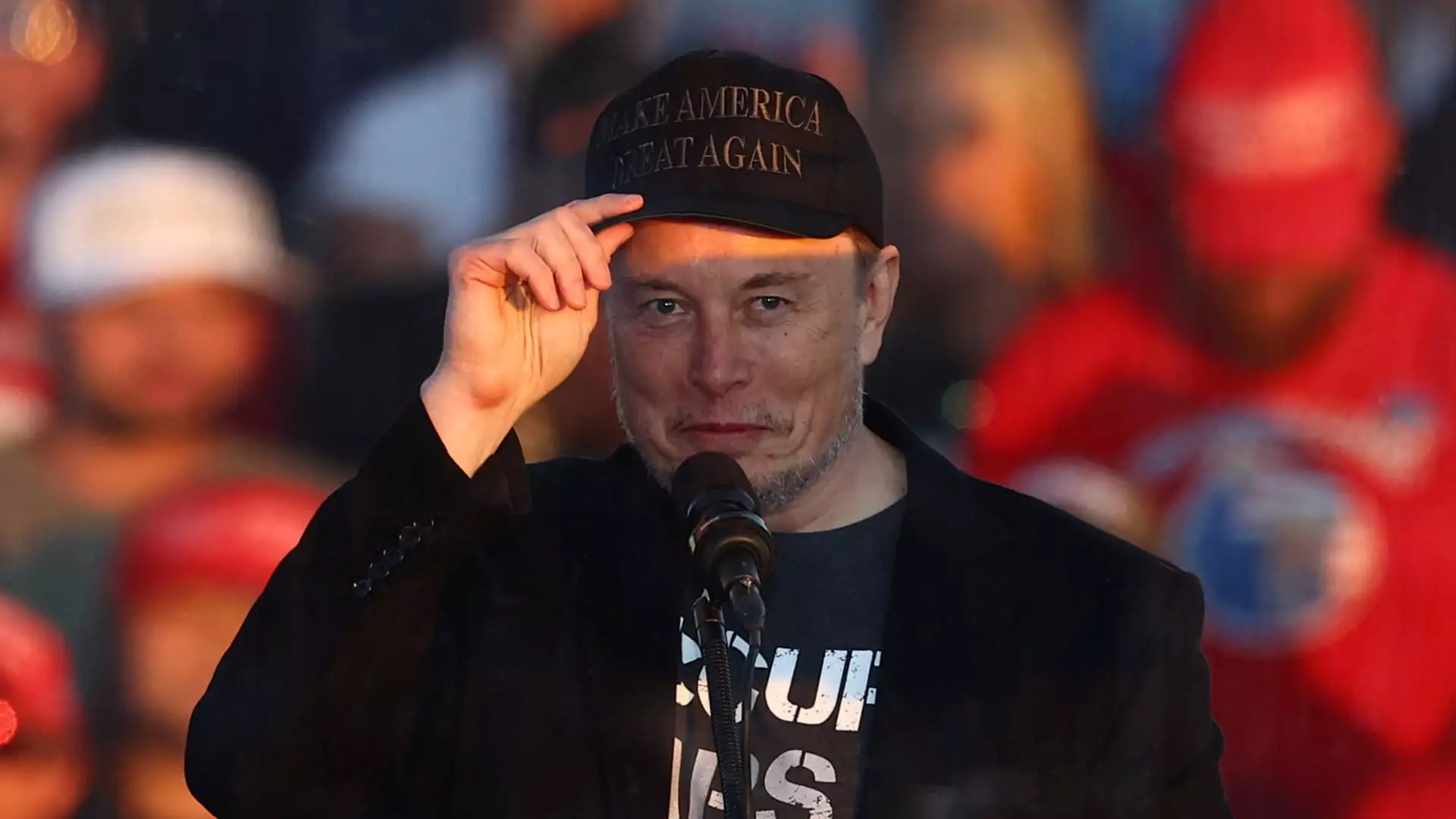Elon Musk, the enigmatic CEO of Tesla and SpaceX, has never shied away from the political landscape. Recently, his influence has reached Europe, particularly Germany, where he publicly endorsed the far-right Alternative for Germany (AfD) party. This relationship has important implications both in terms of German politics and the broader European landscape, where far-right movements have gained traction.
On social media platform X, Musk declared, “Only the AfD can save Germany,” while sharing a post from Naomi Seibt, known for her controversial views and ties to white nationalist ideology. By endorsing the AfD, which has garnered notoriety for its extremist stances, Musk aligns himself with a party that has made headlines for attempting to rehabilitate the image of Nazi-era ideologies. This has raised eyebrows, particularly among political figures in the U.S. and Europe. For example, Senator Chris Murphy labeled Musk as an “out of touch billionaire” and expressed concern about Musk’s apparent support for a neo-Nazi party. Such characterizations highlight the dissonance between Musk’s platform for technological advancement and the backward ideologies of the parties he has chosen to support.
Musk’s political endorsements are not new, as he has a history of involvement with various political figures and movements worldwide. His financial backing of Donald Trump during the 2016 election was substantial, amounting to $277 million, and coincided with a noticeable surge in Tesla’s stock performance post-Trump’s victory. This connection raises questions about the influence of wealthy individuals in shaping political landscapes, especially when combined with a strong social media presence like Musk’s, which boasts 200 million followers.
Further complicating the narrative, Musk’s support for the AfD comes at a time when the party is enjoying increased popularity in German polls, vying for second place ahead of upcoming elections. This situation reflects a broader trend in Europe, where far-right parties have gained ground and often espouse anti-immigration sentiments and skepticism towards the European Union.
Germany’s Chancellor Olaf Scholz has dismissed Musk’s claims outright, asserting the need for a more moderate and inclusive political discourse. Scholz’s leadership continues to face challenges, especially after the collapse of his left-wing coalition government. The AfD’s rise has presented unique political challenges, as traditional parties in Germany have largely refrained from forming coalitions with them, reflecting the inherent tensions in Europe’s political fabric.
While Musk finds himself at odds with established German political norms, it’s essential to examine how his actions contribute to reshaping dialogues and potential alliances in the political spectrum. Rather than viewing Musk’s comments in isolation, they can be understood as part of a larger narrative that challenges the typical bipartisan dynamics seen in many democratic nations.
The AfD is not an isolated case; across Europe, there has been an observable surge in right-wing populism. The party’s stance against Ukraine’s support and sanctions on Russia aligns with Musk’s past comments, suggesting a shared ideological intersection that transcends national borders. Such affiliations may not only be tactical but also indicative of a more extensive ideological trend where economic interests and ideological beliefs converge.
Musk’s endorsement of various right-wing leaders—from Italy’s Giorgia Meloni to Argentina’s Javier Milei—suggests a pattern whereby he aims to legitimize far-right political movements in multiple countries. This raises ethical questions about the role of influential billionaires in dictating political trajectories, especially when their financial interests might be intertwined with their ideological endorsements.
Despite Musk’s political engagements, Tesla faces significant challenges in the European market. Sales figures have shown a stark decline, with a 40.9% drop reported in November, greatly overshadowing the overall decrease in battery electric vehicle sales. The AfD’s critique of Tesla’s factory near Berlin—arguing that jobs benefit mostly outsiders—exemplifies the localized concerns surrounding the global automobile industry. The perception that electric vehicles are intertwined with an ideological climate agenda could hinder Tesla’s prospects in Germany, as the company strives for a foothold in a market that is gravitating towards nationalism.
Elon Musk’s recent political endorsements raise a multitude of socio-political and economic questions that ripple across borders. As he critiques the status quo and aligns himself with controversial political movements, one must consider the broader implications of such actions on not just the political tethering of nations, but on the global economic landscape as well. The intersection of technology, wealth, and political ideology frames a new paradigm of influence, where the lines between innovation and ideological fidelity blur. In an increasingly interconnected world, Musk’s role is one that could indelibly shape the future of both politics and technology.

